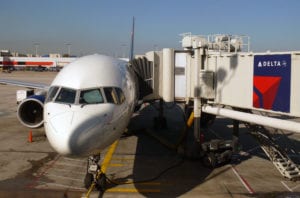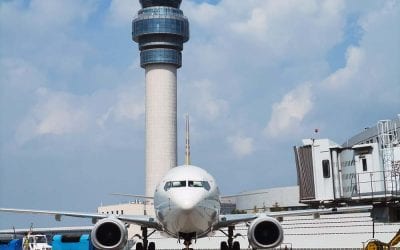New DOT rules announced by President Biden and Secretary of Transportation Pete Buttigieg look to be a good thing for travelers.
 As I understand them, and the rules have just been announced, airlines will have to promptly refund travelers if they cancel a flight; if a domestic flight is delayed more than three hours; or when an international flight is delayed more than six hours, regardless of the reason for the cancellation/delay.
As I understand them, and the rules have just been announced, airlines will have to promptly refund travelers if they cancel a flight; if a domestic flight is delayed more than three hours; or when an international flight is delayed more than six hours, regardless of the reason for the cancellation/delay.
And that’s a good thing. As both a travel agent and a traveler, it’s been frustrating over the years when airlines claim issues are weather or something else out of their control as an excuse for not refunding tickets. And future credits are in general both difficult to deal with and can expire. (Historically one of the worst situations has been when an airline cancels a flight and takes over the ticket from the agency, meaning when the passenger rebooks they have to do so with the airline directly.)
Airlines will have six months to implement the rules.
 This is also a good thing, as already I can see a few potential issues.
This is also a good thing, as already I can see a few potential issues.
- It’s not headlined, but an important issue is these refunds are due IF passengers choose not to stay on the delayed flight or any airline-offered alternative. Sometimes, even when an airline cancels a flight well in advance, there are no good alternatives at the same price. And if it’s a last- minute cancellation, while some travelers may prefer to stay home or buy a new ticket, many may look at the alternatives and decide, for cost or other reasons, to make the best of a bad situation.
- What if a traveler cancels a nonrefundable ticket and gets a credit for a future flight, but then the future flight is delayed or canceled? Is the new ticket refundable or do the original rules apply? And if a nonrefundable ticket can be refunded if the newly booked ticket is canceled, what’s to stop travelers with nonrefundable tickets rebooking on a date they expect bad weather or a strike? (Yes, that might sound a bit farfetched, but trust me, when money is concerned, some travelers will try anything.
- Travel agencies generally have the ability to refund any ticket we issue, although airlines enforce their rules by penalizing us after the fact if we do it wrong in any way, shape or form. I’ve been penalized for not charging the correct penalty, or refunding the wrong tax, etc. But there are instances when we can’t refund. For example, if a client’s flight is delayed or they ask the airline for a change direct, SOMETIMES the airline takes over the ticket, or part of the ticket. And it shows in our system as “EXCH” — exchanged. In those cases, only the airline can process the refund — if they exchange part of the ticket it’s an even bigger mess.
- Some tickets are issued through tour-package companies. So while a traveler may give their money to either a travel agency or tour operator, there may be a few layers between that agency and the ticket. Those may take longer. In some cases, a ticket may be an unpublished fare available only in conjunction with a land package so it it isn’t obvious how much refund is due. And the refund may be much less than a traveler expects. Right now, many package companies quote all inclusive rates and will not give a breakdown so as not to break confidentiality on the fares airlines are giving them. In other cases, hotels subsidize airfares as part of a package.
- Deals with tour and cruise companies’ “Free air” or “Discount business class air” are a whole different issue. Cruise companies, for example, don’t tell us their costs, but I recently booked clients on a river cruise in Europe with a special mid-class air for about $1600 from San Francisco. I have no idea what the actual tickets cost. And how would the traveler know if forced to make a quick decision on taking the refund and buying new tickets or accepting a less than ideal delayed option?
- Airline ticket sellers have to make money somehow. Sometimes it’s fees. But net fares marked up to include a profit and commissionable fare are a whole other potential issue. Airlines famously cut standard pay on tickets for agencies decades ago, but in some cases — particularly on business class fares ‚— they may have confidential contracts with preferred agencies for some commissions. Whether it’s a fee included in the ticket price or a commission, how will this affect refunds?
In addition, sick passengers will have new benefits.
“In addition, in instances where consumers are restricted by a government or advised by a medical professional not to travel to, from, or within the United States due to a serious communicable disease, the final rule requires that airlines must provide travel credits or vouchers. Consumers may be required to provide documentary evidence to support their request. Travel vouchers or credits provided by airlines must be transferrable and valid for at least five years from the date of issuance.”

READ ASLO:
The opportunity to modernize the outdated perimeter rule is here
15 top rules of what not to do with checked luggage
Janice Hough is a California-based travel agent a travel blogger and a part-time comedy writer. A frequent flier herself, she’s been doing battle with airlines, hotels, and other travel companies for over three decades. Besides writing for Travelers United, Janice has a humor blog at Leftcoastsportsbabe.com (Warning, the political and sports humor therein does not represent the views of anyone but herself.)


